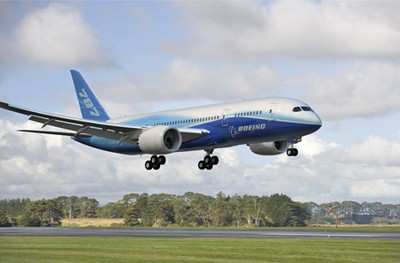Sun, Oct 11, 2020
AD 2020-20-09 Requires Installing Flight Control Electronics (FCE) Common Block Point 5 (CBP5) Software
The FAA is superseding Airworthiness Directives (ADs) 2015-14-07, 2016-07-10, and 2016-24-09. AD 2015-14-07 applied to certain The Boeing Company Model 787-8 airplanes.

AD 2016-07-10 and AD 2016-24-09 applied to all The Boeing Company Model 787-8 and 787-9 airplanes. ADs 2015-14-07, 2016-07-10, and 2016-24-09 required actions related to certain flight control module (FCM) software. This AD requires installing flight control electronics (FCE) common block point 5 (CBP5) software, which terminates the requirements of the ADs superseded by this AD. This AD was prompted by certain deficiencies in the FCM software, including a report of an unannunciated dual symmetric inboard slat skew. The FAA is issuing this AD to address the unsafe condition on these products. This AD is effective November 13, 2020.
Supplementary Information: The FAA issued a notice of proposed rulemaking (NPRM) to amend 14 CFR part 39 to supersede the following ADs:
- AD 2015-14-07, Amendment 39-18205 (80 FR 42014, July 16, 2015) (“AD 2015-14-07”). AD 2015-14-07 applied to certain Model 787-8 airplanes.
- AD 2016-07-10, Amendment 39-18455 (81 FR 18741, April 1, 2016) (“AD 2016-07-10”). AD 2016-07-10 applied to all Model 787-8 and 787-9 airplanes.
- AD 2016-24-09, Amendment 39-18726 (81 FR 86912, December 2, 2016) (“AD 2016-24-09”). AD 2016-24-09 applied to all Model 787-8 and 787-9 airplanes.
The NPRM published in the Federal Register on January 2, 2020 (85 FR 23). The NPRM was prompted by deficiencies in the FCM software, including reports that, in certain weather conditions, erroneous low airspeed data may be displayed to the flightcrew before detection and annunciation via engine-indicating and crew alerting system (EICAS) messages, a report indicating that all three FCMs might simultaneously reset if continuously powered on for 22 days, and one report of unannunciated dual symmetric inboard slat skew. The NPRM proposed to require installing FCE CBP5 software, which would also address the identified unsafe conditions and terminate the requirements of the ADs superseded by this AD. The FAA is issuing this AD to address deficiencies in the FCM software that could prevent continued safe flight and landing; to prevent unrealistic, sudden drops in displayed airspeed at high actual airspeed, which could lead to pilot control inputs that could exceed the structural capability of the airplane;
to prevent simultaneous resets of all three FCMs, which could result in flight control surfaces not moving in response to flight crew inputs for a short time and consequent temporary loss of controllability; and to address potential unannunciated dual symmetric inboard slat skew, which can result in adverse handling characteristics of the aircraft.
More News
Aero Linx: American Aviation Historical Society AAHS is dedicated to the preservation and dissemination of the rich heritage of American aviation. Our purpose is to collect, preser>[...]
CrewMember (UAS) A person assigned to perform an operational duty. A UAS crewmember includes the remote pilot in command, the person manipulating the controls, and visual observers>[...]
Immediately After The Right Main Tire Contacted The Runway Surface, The Right Main Landing Gear Failed On October 31, 2025, at about 1227 Pacific daylight time, a Maule M-7-235A, N>[...]
Also: IAE Acquires Diamond Trainers, Army Drones, FedEx Pilots Warning, DA62 MPP To Dresden Tech Uni The danger to the flight training industry and our future pilots is clear. Dona>[...]
"On December 3, 2025, at approximately 10:45 a.m., a Thunderbird pilot ejected safely from a F-16C Fighting Falcon aircraft during a training mission over controlled airspace in Ca>[...]
 ANN's Daily Aero-Linx (12.03.25)
ANN's Daily Aero-Linx (12.03.25) ANN's Daily Aero-Term (12.03.25): CrewMember (UAS)
ANN's Daily Aero-Term (12.03.25): CrewMember (UAS) NTSB Prelim: Maule M-7-235A
NTSB Prelim: Maule M-7-235A Airborne-Flight Training 12.04.25: Ldg Fee Danger, Av Mental Health, PC-7 MKX
Airborne-Flight Training 12.04.25: Ldg Fee Danger, Av Mental Health, PC-7 MKX Aero-News: Quote of the Day (12.04.25)
Aero-News: Quote of the Day (12.04.25)



